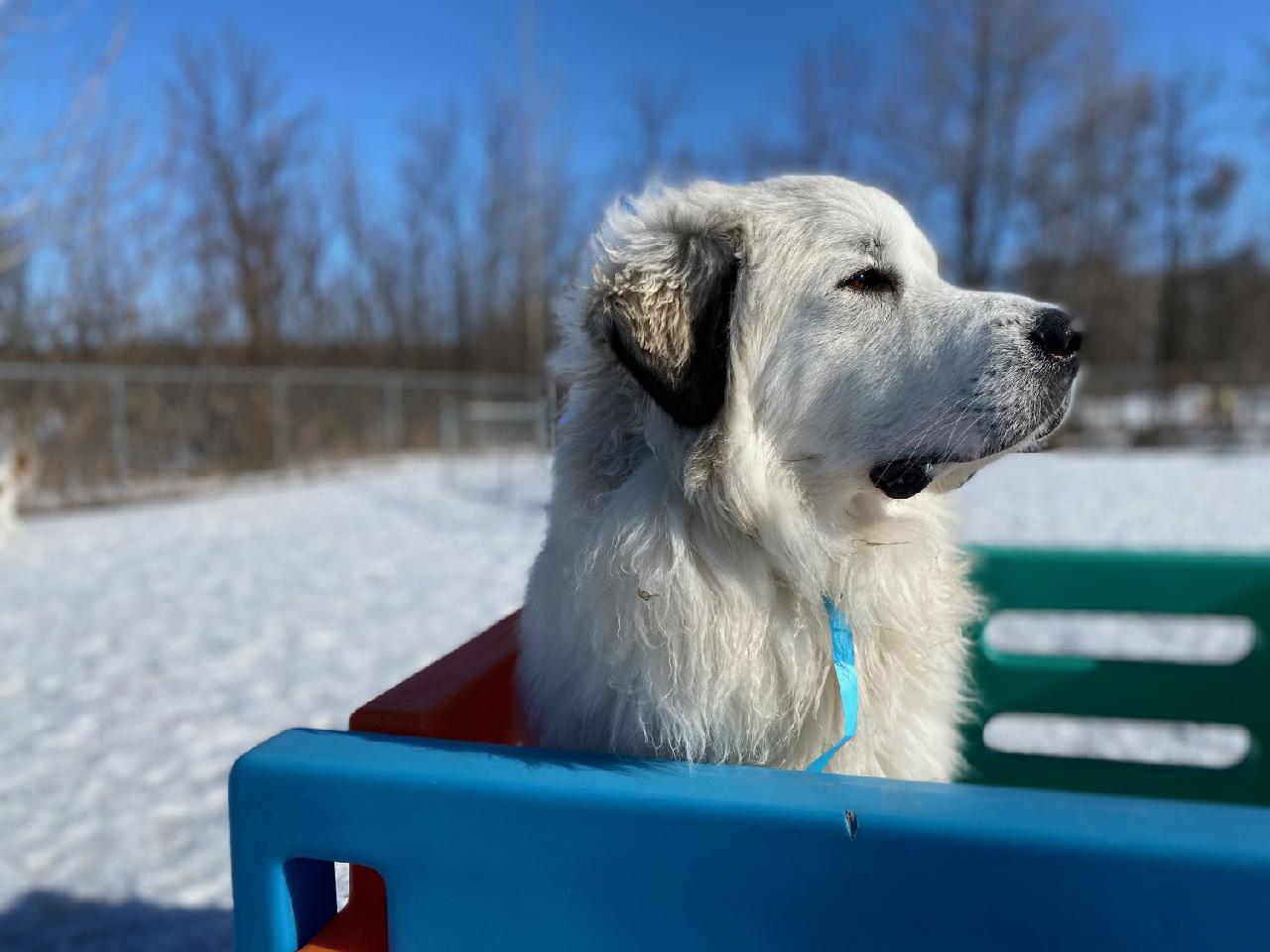Giant Breeds come with Giant Responsibilities
By Kaytie Wildman ZimmVet Veterinary Assistant

So you’ve decided to adopt a giant breed puppy! Here are some tips on bringing your puppy home and giving them the basic care. Initially before deciding on adopting a giant breed puppy, self education is essential to starting them off on the right paw.
Health is one of the most important aspects for giant breeds. With giant breeds, come giant responsibilities. That includes researching and seeking out a veterinarian that is knowledgeable in giant breeds and that can help guide you and your new pup to a healthy life. Staying up to date on a flea and tick preventative, heartworm prevention, and age appropriate vaccines are some of the many important things you will discuss with your veterinarian.
Feeding your new puppy may seem daunting, but with research and following the advice from your veterinarian, you can start them on the right food and feel at ease that Fido will receive all the nutrition he needs. For puppies under the age of 6 months, it is recommended that their feedings be divided into 3 meals throughout the day; morning, midday, and evening. Free feeding is not recommended; over eating can result in rapid growth, stress on joints and bones, overweight, skeletal malformation, and other health issues. The type of food is just as important as how frequent they are fed. Not all puppy foods are created equal. Dogs that will be over 50 pounds as their adult weight should be fed a large breed puppy food until at least 12 months of age. Keep human food and treats to under10% of their total diet to help prevent unbalancing of the food. Monitoring weight, measuring out food, and keeping track of how much they consume is important. If your puppy is eager and inhales their food, look into getting a slow-feeder bowl. It is recommended that giant breeds have an hour of rest one hour before and after every feeding. Talk to your veterinarian about a surgery called gastropexy. This is usually done around 1.5 years of age and prevents twisting of the stomach.
Training from an early age is essential. You need to be able to manage their behavior and teach them to respect people. Working with an experienced dog trainer can help build a solid training base early on. Understand if you don’t put in the effort early on, you’ll only be making things difficult for the future. Socialization is crucial to giant breeds. Learning new environments and meeting different people helps solidify proper behavior and lessen the risk of injury due to excitement or stimulation. The basic commands of sit, wait, come, down, off, heel, and leave it are your greatest tools.
Exercise! Giant breeds are bursting at the seams with energy. Providing fun, low impact exercise is important. There are several methods of wearing out your puppy for a restful night’s sleep. Taking daily walks is the best way to not only exercise but to also train your new family member how to walk on a leash properly and safely, and experience new environments. Playing fetch also helps with your puppy’s recall; one of the most crucial things you can teach your puppy. If you don’t have a yard large enough for your puppy to run around in, look into dog parks or a doggie daycare.
Giant breeds grow at a tremendous rate, you will need to budget for food, training, toys, and gear. There are many options available for leashes and collars, find what fits your pet and works best for your individual pet. A trainer can make specific recommendations. Purchase a crate that comes with a divider in the middle for when they are still small. Providing a soft, cushioned area for them to lay on is important for their growing bones. Puzzle toys can help to keep puppy entertained and satisfied.
Adopting a new puppy should never be done on a whim. Understanding the breed, you are looking to adopt is important not only for you and your family, but also the puppy. “A dog is a companion for life, and bigger dogs just make for more joy and excitement. They may be gigantic, but they’re goofy, loving and extremely loyal. Big dogs just need a little more guidance and care to navigate through this human world.”


